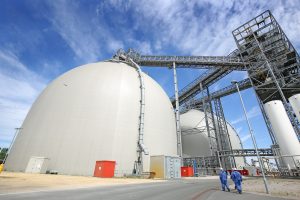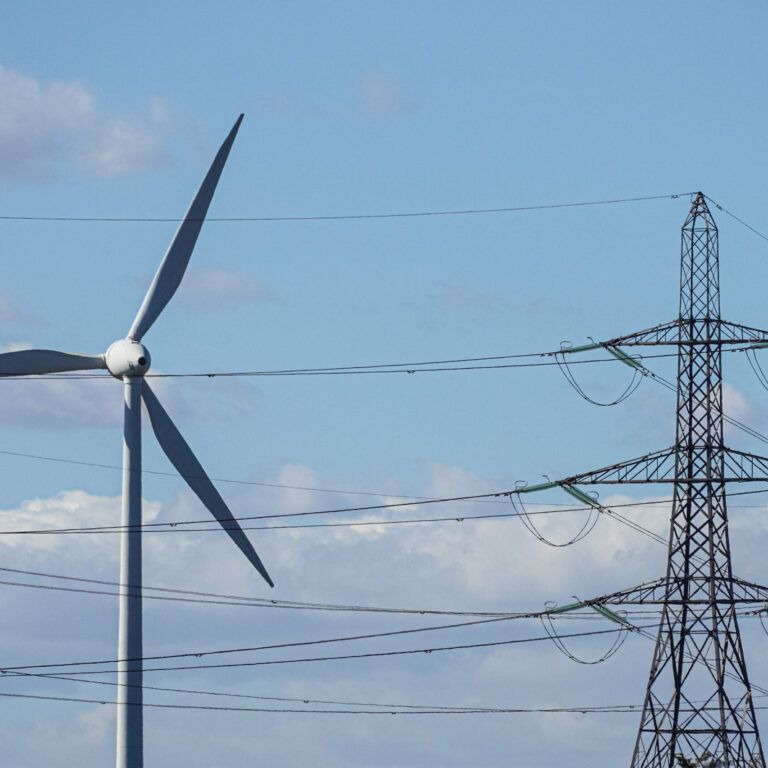British energy business Drax Group contributed almost £1.7 billion towards UK GDP in 2016 and supported thousands of jobs across the country, including £577m across the North of England – Yorkshire and Humber, North West, and North East, termed as the ‘Northern Powerhouse Region’.
The findings were revealed in a new report looking at the economic impact of Drax’s UK operations, which includes Selby-based Drax Power Station. The Power Station, which employs around 900 people and has seen three of its six generating units converted in recent years to use compressed wood pellets, generated 16% of the country’s renewable electricity in 2016 – enough for four million households, the equivalent of Leeds, Manchester, Sheffield and Liverpool.
Researchers at Oxford Economics used three measures to calculate Drax’s GDP contribution: the economic activity associated with the day-to-day running of the business; the activity created by the purchase of goods and services from its suppliers; and the wages the company’s employees and suppliers’ employees spend in their local area.
In the past year, Drax Power Station’s activities have supported employment in a wide range of sectors including high-skilled manufacturing of industrial components, engineering and technical machinery, construction, IT, professional business services and transport.
Drax Power CEO, Andy Koss said: “This new report demonstrates that as well as being of major significance nationally as the country’s biggest power generator, Drax Power Station continues to play a crucial role in supporting the northern economy.
“Thanks to a sophisticated supply chain that spans both the east and west coasts of the country, Drax supported over 6,000 jobs across the North of England last year and generated more than £1/2 billion in economic activity. Drax works with hundreds of businesses across the Northern Powerhouse region to ensure millions of homes across the country have the power they need each day.
“The North of England has a rich heritage in providing energy to the rest of the UK. Companies like Drax have an important role to play in delivering a low carbon economy as part of the Government’s wider industrial strategy for the country”.
Alan Waddington, Managing Director of TEi Ltd, a leading engineering company based in Wakefield, said:
“Our specialist team of engineers have been working at Drax Power Station for a number of years, using their technical knowledge to support its transition to become the largest source of renewable power in the country.
“As a British business we are proud to support this nationally significant asset that generates enough clean electricity to power Leeds, Manchester, Sheffield and Liverpool.”
Osman Ismail, Senior Economist at Oxford Economics, said: “Drax Group makes an important economic contribution to Yorkshire and the Humber, and the UK more widely. Its activities generated almost £1.7 billion in GDP last year, and sustained thousands of jobs across the nation.”
ENDS
Full details of the study can be found at draximpact.co.uk
Media contact:
Jessica Gorton
Press Officer
Drax
07712 677177
Notes to editors:
About Drax Group
Drax Group plc plays a vital role in helping change the way energy is generated, supplied and used as the UK moves to a low carbon future. Drax operates the largest power station in the UK, based at Selby, North Yorkshire and supplies 7 percent of the country’s electricity needs. The energy firm converted from burning coal to become a predominantly biomass-fuelled electricity generator. Drax is the biggest single site renewable generator in the UK and the largest decarbonisation project in Europe. Its 2,300-strong staff operate across three principal areas of activity – electricity generation, electricity sales to business customers and compressed wood pellet production.
The Group includes:
Drax Biomass, based in the US and manufactures compressed wood pellets produced from sustainably managed working forests.
Haven Power, based in Ipswich, providing businesses with electricity.
Opus Energy, based in Oxford, Northampton and Cardiff, providing electricity and gas to businesses.
Billington Bioenergy, based in Liverpool with depots across the UK, is one of the leading distributors of wood pellets for sustainable heating in the UK.
For more information visit www.drax.com/uk
About Oxford Economics
Oxford Economics was founded in 1981 as a commercial venture with Oxford University’s business college to provide economic forecasting and modelling to UK companies and financial institutions expanding abroad. It is now one of the world’s foremost independent global advisory firms, providing reports, forecasts and analytical tools on 200 countries, 100 industrial sectors and over 3,000 cities. Its best-of-class global economic and industry models and analytical tools give an unparalleled ability to forecast external market trends and assess their economic, social and business impact.
About the study
Oxford Economics assessed the economic benefits of Drax Group using a standard means of analysis, called an economic impact assessment. This approach is applied in each of the three stages of the study.
The full report can be viewed here: https://draximpact.co.uk/public/Oxford_Economics-Economic_impact_of_Drax_in_the_UK_2016.pdf











